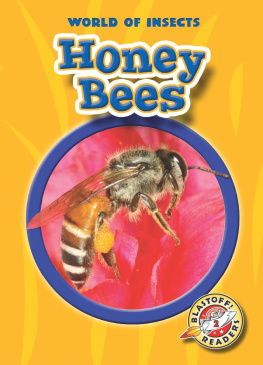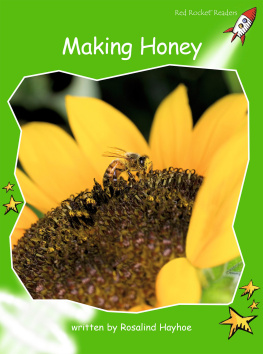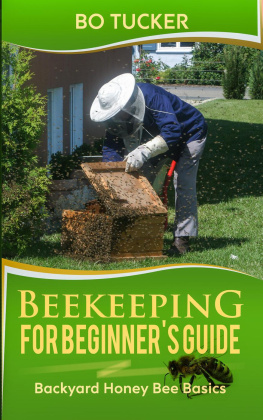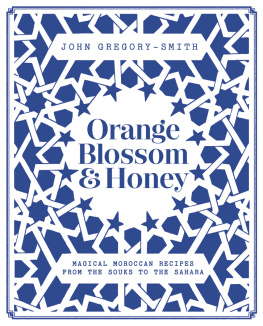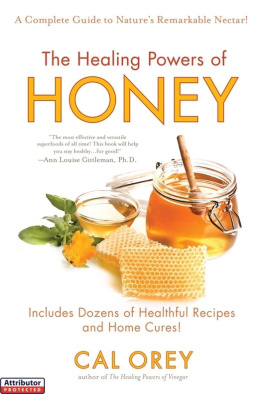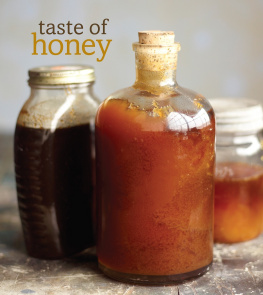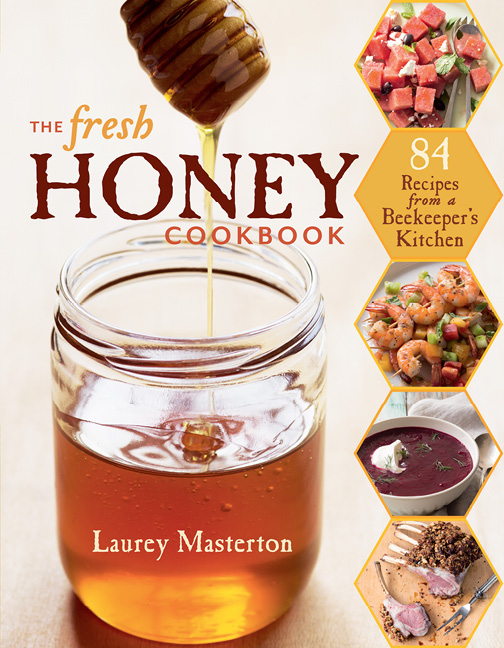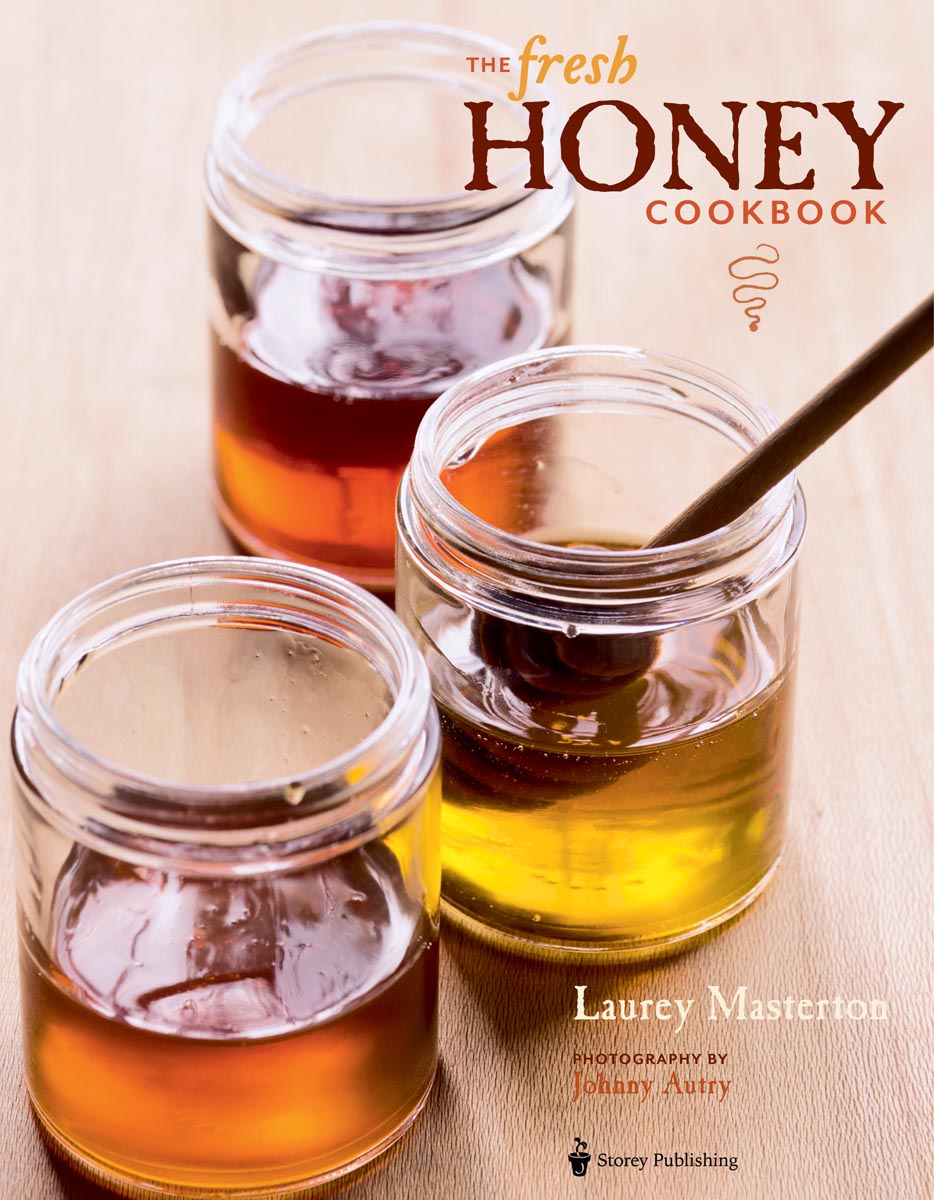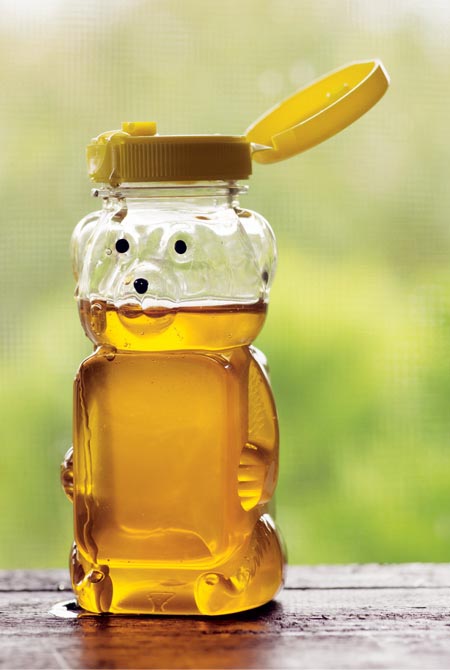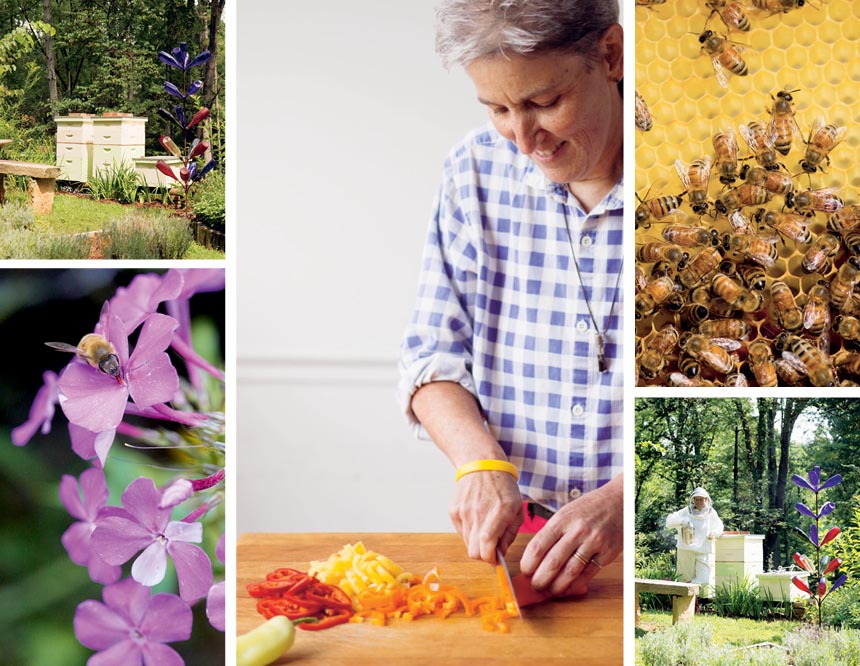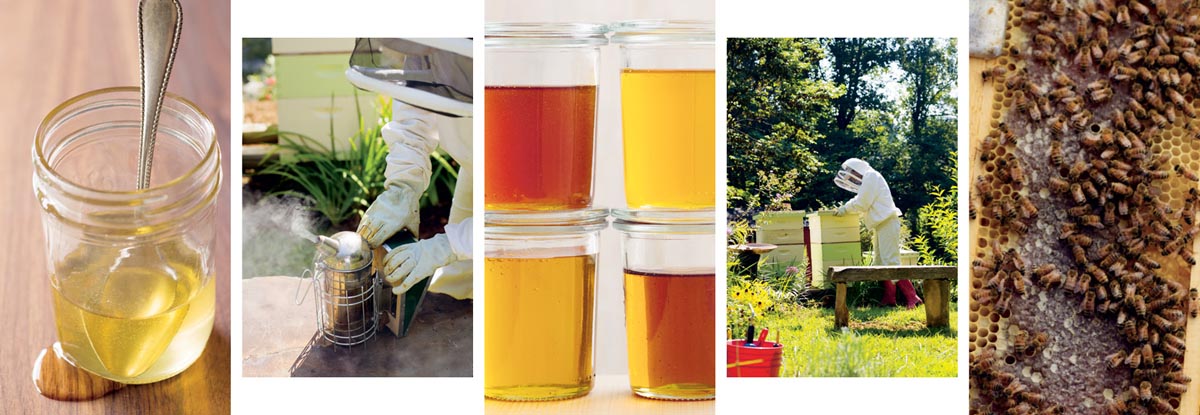Dedication
To my mentors, Carl and Debra, who are teaching me how to dance with the bees
To my wonderful sisters, Lucinda and Heather, who love and support me in all things
To my sweet, sweet Barbee, who inspired me to start learning about bees
And most of all, to the bees, the most inspirational teachers of all
Thanks
To Lisa and Sally Ekus, the most supportive, loving, and hard-working agents I could ever imagine. Thank you so much for everything. I mean everything!
To Margaret Sutherland, Sarah Guare, Carolyn Eckert, and everyone at Storey Publishing for shepherding this book from the inside of me out into the world.
To Dianne Tuttle, for amazing support and love and for being such a fine-toothed proofreader.
To Charlotte and Johnny Autry for photographic and food-styling magnificence.
To my recipe testers: Kim Austin, Jan Brunk, Drew Gladding, Barbara Hammer, Chet Holden, Marlisa Mills, Eleanor Owen, Cindy Platt, Kim Rosenstein, Blake Swihart, Jane Ann and Phineas Tager, Adam and Emily Thome, and Noel Weber.
To the entire gang at Laureys: Emily, Adam, Noel, Leslie, Brendan, Lito, Rolando, Martha, Deb, Marty, Barbara, Edith, Andrew, Andy B., Andy L., Jason, Ari, Evelyn, Austin, Irvegg, and especially to my favorite hero of all, Henry.
To my doctors, without whom I truly would not be here: Dr. Paul Ahearne and Amy Antczak; Dr. Michael Messino and his incredible team: Tina Messer, Debbie Splain; and especially Charlotte Lail, Debbie Payne, and Janet Magruder, my true Guardian Angels; and Dr. Benjamin Calvo and Teresa Sadiq.
To the many, many hundreds of prayers and offerings and thoughts of love and light that lifted me, held me, and carried me as I waded through a year of treatment, all while writing this book.
To Livestrong at the YMCA of Asheville and to Livestrong and the Lance Armstrong Foundation for helping me get back on my feet.
Gracias Recibidas
Thanks to St. Peregrine and to the heart Milagro for prayers received.
And finally, thanks to Alicia.
Contents
Preface
I grew up around food. My parents, Elsie and John Masterton, founded Blueberry Hill Inn in Goshen, Vermont. I grew up there and loved helping my mother cook and my father host guests in the inn. My mother wrote the Blueberry Hill series of cookbooks, which got me started as a cook. My first solo cooking triumph, at the age of six, was the successful completion of a batch of my mothers brownies.
Though I had planned to run Blueberry Hill Inn when I grew up, my parents deaths when I was 12 sent me on a different path. My two sisters and I tried to live with other families and, when that didnt work, went away to boarding schools and then college. Each move took us farther from Blueberry Hill. Life with my beloved inn seemed impossible, so I set my sights elsewhere and pursued various side routes, following interesting invitations and detours. I worked on a fishing boat and repaired fishing nets. I washed dishes in a restaurant and at a summer camp. I designed stores and commercial showrooms. I worked as a theatrical designer in Off-Broadway, Off-Off-Broadway, and Broadway theaters in New York City, and finally, searching for a way to get out of dark theaters, I made my way to North Carolina, where I attended an Outward Bound course and later became an instructor.
Food was never far from my heart. And though running Blueberry Hill was not a possibility for me, I realized that I could still cook for my livelihood. I plunged in, launching a catering company from my tiny Asheville apartment in 1987. I managed to cobble together enough work so that by 1990 I was actually supporting myself. The local health department got wind of my venture one fateful day, however, and I was forced to either quit or grow, which I did (grow, that is), moving to the sleepy downtown of Asheville well before its renaissance. Originally operating just a catering kitchen, I gave in to customer pressure and expanded from 2 to 14 seats, adding retail and a caf.
Laureys is now in its fourth location and comprises a 50-seat caf and a busy catering company with a full staff of what I call talented and interesting individuals: artists, musicians, and creative people of all kinds. We serve gourmet comfort food in an airy old horse-drawn-carriage-making building, just a block away from the heart of Asheville. We get our food from as many local sources as we can, totaling as many as 30 different farmers and local beekeepers when our growing season is at its height. A big part of my vision, along with making great food, is to take care of the Earth, a point that drives me and informs the direction and mission of my business.
A Sweet Education
A few years ago, I was invited to cater a party for The Honeybee Project, an Asheville-based group that teaches children about the importance of honeybees to our food supply. After talking with the partys host, I decided to make only foods that would not exist without honeybees. As I explored and researched the menu, I was amazed to learn that without honeybees we would not have nuts, avocados, strawberries, melons, apples, and many, many other foods.
After getting this glimpse, I wanted to learn more. Dave, one of my local honey suppliers, suggested I go to the local bee school, and in 2007 I signed up to attend the introduction to beekeeping course to be held the following January.
Bee school thrilled me. By the end of the first morning of class, I had bought a bee jacket, thereby committing myself to jumping in even though I had very little idea of what I was undertaking. By the end of the first weekend, I had made a list of equipment I would need to get started. By the end of school, I had placed an order and paid for two colonies of bees, which would arrive as soon as the temperatures around Asheville got warm enough. I was about to become a beekeeper.
One day shortly after bee school ended, I offered to teach a class of schoolchildren about bees and honey in my shop. I brought in all my bee gear, reviewed my notes, and prepared to teach. After my presentation, I offered tastes of honey and some recipes I had prepared using foods that would not exist without honeybees.
All of the children enthusiastically dove into the strawberries and avocados, chanting One! Two! Three! This bite is the third bite! I looked over at Susan, their teacher, who was sitting with some of her students. What was this all about?
The children have been studying, she said, and they know that every third bite they eat would not exist if it werent for honeybees.
Every third bite? Really? I had never heard this before. Every. Third. Bite. Wow. Where would we be without honeybees? Where, for that matter, would I, a restaurant owner, be without food to cook? I knew bees made honey, but no one depends on honey, even though we may like it. But



